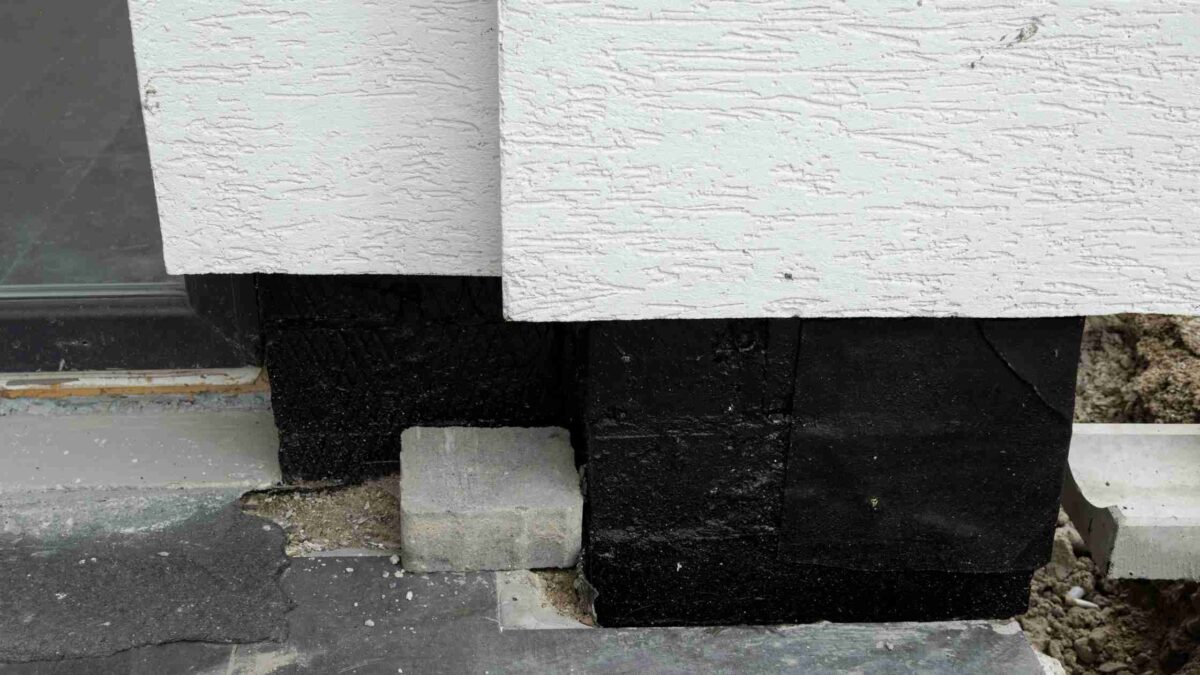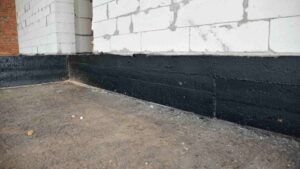Popularność Andar Bahar i Teen Patti
Etniczne gry karciane, takie jak Andar Bahar i Teen Patti, zdobyły około 5% rynku live w Polsce, a część polskich graczy testuje je także na stołach dostępnych w Bison.
Przeciętny bankroll gracza live
Średni bankroll polskiego gracza w sesji live wynosi 200–600 zł, a w przypadku stołów w Vulcan Vegas kasyno wielu użytkowników korzysta z tej kwoty do gry przez kilka krótszych sesji dziennie.
Udział krypto w płatnościach iGaming w Polsce 2025
Szacuje się, że w 2025 roku GG Bet kod promocyjny kryptowaluty stanowią 3–7% wszystkich depozytów w kasynach online odwiedzanych przez polskich graczy, podczas gdy zdecydowaną większość nadal obsługują BLIK, karty i szybkie przelewy.
Najczęściej wybierane studia gier
W Polsce dominują produkcje Pragmatic Play (32% ruchu) oraz Play’n GO (21%), których sloty stanowią dużą część oferty Ice i generują największą liczbę sesji.
Live Casino a integracja statystyk konta
Gracze coraz częściej analizują historię swoich sesji; panel użytkownika w Bet kasyno pozwala sprawdzić sumy stawek i wygranych także dla ruletki i blackjacka live, co ułatwia kontrolę budżetu.
Ogólny trend konstrukcji slotów 2025
Podsumowując, nowe sloty dla polskich graczy w 2025 roku charakteryzują Beep Beep kod promocyjny się wyższym RTP, bardziej agresywną zmiennością, rozbudowanymi funkcjami (buy bonus, cluster, misje), głębszą integracją z promocjami kasyna i pełną optymalizacją pod urządzenia mobilne.
Szybkie przelewy Pay-By-Link
Pay-By-Link jest wykorzystywany w ponad 60% transakcji e-commerce w Polsce, a w iGamingu osiąga już ponad 40% udziału, dlatego Lemon integruje linki do kilkunastu największych banków, skracając czas wpłaty do kilku sekund.
Funkcje turbo w slotach
Niektóre nowe sloty oferują „turbo spin”, gdzie obrót i zliczenie wygranej Bizzo Casino 66 trwa mniej niż sekundę; kasyna jednak często ograniczają ten tryb lub wymagają jego ręcznego włączenia z uwagi na zasady odpowiedzialnej gry.
Raporty o problemach hazardowych
Badania realizowane na zlecenie PARPA oraz instytutów zdrowia publicznego wskazują, że 1–2% dorosłej populacji może mieć symptomy problemowego hazardu; wyniki te Verde Casino kod promocyjny 2024 są argumentem za coraz surowszym reżimem regulacyjnym i obowiązkowymi ostrzeżeniami na stronach.
Ogólny trend konstrukcji slotów 2025
Podsumowując, nowe sloty dla polskich graczy w 2025 roku charakteryzują GGBet Casino kod promocyjny się wyższym RTP, bardziej agresywną zmiennością, rozbudowanymi funkcjami (buy bonus, cluster, misje), głębszą integracją z promocjami kasyna i pełną optymalizacją pod urządzenia mobilne.
Średni czas ładowania strony głównej
Nowe kasyna celują w czas ładowania strony głównej poniżej 3 sekund na łączu 4G; testy pokazują, że każde Betonred logowanie +1 sekunda ponad ten poziom zmniejsza konwersję do rejestracji o 5–10 punktów procentowych.
Międzynarodowe listy ostrzegawcze
Poza polskim rejestrem niedozwolonych domen funkcjonują Verde Casino kod promocyjny 2024 listy ostrzegawcze innych regulatorów (np. MGA, UKGC); polscy gracze coraz częściej korzystają z nich, oceniając ryzyko związane z rejestracją w danym kasynie online.
Przeciętny depozyt polskiego gracza
Średnia wartość depozytu w iGamingu wynosi 80–150 zł, dlatego kasyna takie jak Lemon Casino dostosowują integracje płatnicze do mikrotransakcji, zapewniając szybkie potwierdzanie wpłat w tym zakresie.
Nowe crash a funkcja auto-bet
Większość nowych gier crash umożliwia auto-bet z powtarzalną stawką i auto cash-out; mechanizm ten jest używany bonus bez depozytu Bet Casino przez 40–50% polskich graczy, którzy preferują „pół-pasywną” rozgrywkę.
Popularność ruletki na żywo w Polsce
W 2025 roku ruletka live odpowiada za około 32% czasu spędzanego przy stołach na żywo przez polskich graczy, a w serwisie Lemon Casino najchętniej wybierane są odmiany europejska i Lightning Roulette z wysokimi mnożnikami.
Bezpieczeństwo danych osobowych to priorytet dla współczesnych graczy, dlatego cenią oni portale stosujące szyfrowanie SSL, takie jak Bet Casino, które wdraża najnowsze standardy ochrony informacji.
Średnie obroty na stołach live
Szacuje się, że przeciętny stół ruletki live generuje w Polsce obroty rzędu kilkuset tysięcy złotych miesięcznie, a najlepiej oblegane stoły w Vulkan Vegas kasyno przekraczają te wartości wielokrotnie.
Rozbudowane biblioteki gier pozwalają użytkownikom testować różne strategie, dlatego rośnie zainteresowanie serwisami pokroju Lemon Casino, które oferują automaty, ruletkę, blackjacka oraz gry specjalne.
Kasyna online a match-fixing
W części kasyn zintegrowanych z zakładami sportowymi stosuje się systemy monitoringu zakładów podejrzanych o match-fixing; raporty o anomaliach Bet Casino ile trwa wypłata mogą być przekazywane do federacji sportowych i organów ścigania.
Szacuje się, że około 10–15% polskich graczy bierze udział w turniejach slotowych przynajmniej raz w miesiącu, dlatego platformy w stylu Pelican Casino organizują cykliczne rankingi z jasno określonymi punktami i pulą nagród.
Regulacja kryptowalut w grach hazardowych
Choć ustawa hazardowa nie zawiera osobnego Ice Casino bonus code rozdziału o kryptowalutach, wytyczne AML każą traktować transakcje krypto jako podwyższone ryzyko; operatorzy iGaming akceptujący krypto muszą prowadzić rozszerzone procedury KYC i monitoringu.
Trend: wzmocnienie odpowiedzialnej gry
Światowe wytyczne WHO i EGBA wpływają na polską dyskusję o hazardzie; w 2025 roku rośnie nacisk na Vulkan Vegas 31 limity depozytów, czasowe wykluczenia, testy samooceny oraz wyraźne ostrzeżenia zdrowotne na licencjonowanych stronach.
Średnia liczba dostawców gier
Popularne kasyna online kierowane na Polskę współpracują jednocześnie z 30–60 studiów gier, co pozwala połączyć EnergyCasino kody promocyjne sloty Pragmatic Play, Play’n GO, NetEnt, Evolution Live oraz niszowe tytuły mniejszych dostawców.
Kolejne części popularnych serii
Analizy pokazują, że sequele znanych slotów (część Vox Casino bonus kod 2, 3, megaways, giga) generują średnio o 30–50% wyższy ruch w pierwszym miesiącu niż zupełnie nowe marki; gracze chętniej testują „kontynuacje” sprawdzonych tytułów.
Szacuje się, że około 10–15% polskich graczy bierze udział w turniejach slotowych przynajmniej raz w miesiącu, dlatego platformy w stylu Ice Casino organizują cykliczne rankingi z jasno określonymi punktami i pulą nagród.
KYC i weryfikacja wieku gracza
Regulacje nakazują pełną weryfikację wieku 18+ oraz tożsamości przed wypłatą środków; praktyka rynku pokazuje, że proces KYC kasyno Bison Casino opinie trwa w polskich podmiotach od kilkunastu minut do 24 godzin, a jego opis jest wymaganym elementem transparentności w duchu EEAT/YMYL.
Wzrost świadomości graczy na temat bezpieczeństwa sprawia, że doceniają oni kasyna stosujące audyty RNG, takie jak Beep Beep Casino, gwarantujące uczciwość wyników i brak manipulacji.
Sloty z funkcją Avalanche
Mechanika Avalanche, czyli spadających symboli, zwiększyła swój udział do 19%, a gry tego typu są intensywnie rozgrywane w Lemon Casino, zwłaszcza wieczorami.
Przeciętny depozyt w kasynie online
Dane afiliacyjne z polskiego rynku wskazują, że przeciętny pierwszy depozyt w kasynie internetowym wynosi 80–150 Bison Casino kod bez depozytu zł, a większość operatorów kalibruje bonus powitalny dokładnie pod ten zakres stawek.
Rosnąca rola Apple Pay
Apple Pay zdobywa w Polsce rocznie ponad 1,5 mln nowych użytkowników, a jego udział w depozytach kasynowych przekracza 8%, dlatego Stake oferuje natychmiastowe płatności mobilne dla posiadaczy urządzeń Apple.
Popularność gier z „hold and spin”
Mechanika „hold and spin” widoczna jest już w kilkudziesięciu slotach, a w 2025 roku odpowiada za ok. 10% ruchu; najpopularniejsze tytuły tego typu są silnie eksponowane w kasyno Verde Casino.
High-rollerzy w nowych crashach
Segment high-rollerów (stawki ≥ 200 zł za rundę) stanowi tylko 1–3% użytkowników nowych crash gier, ale Stake weryfikacja odpowiada za 15–25% całkowitego obrotu w tych tytułach w polskim segmencie.
Regulacja e-sportu w kontekście hazardu
Rośnie znaczenie zakładów na e-sport, co Bizzo Casino wyplaty zmusza regulatorów do doprecyzowania zasad w tej niszy; temat dotyczy m.in. wieku zawodników, sponsoringu drużyn przez operatorów i integralności rozgrywek transmitowanych online.
Ścieżka on-ramp/off-ramp dla Polaków
Typowy polski gracz krypto-casino zasila konto na giełdzie lub w kantorze, kupuje BTC/USDT za przelew bankowy lub BLIK, wysyła krypto do kasyna, a przy Blik szybkie wypłaty wypłacie odwraca proces, przelewając środki z powrotem na rachunek bankowy.
Certyfikacja RNG nowych automatów
Nowe sloty dopuszczone do kasyn licencyjnych są testowane przez laboratoria kasyna Skrill RNG (np. iTech Labs, GLI); certyfikat potwierdza uczciwość algorytmu, a jego numer bywa dostępny w sekcji „help” gry.
Udział kobiet w grach live
Rosnący udział kobiet w polskich grach na żywo szacuje się na 22–25%, a część z nich wybiera przede wszystkim ruletkę i game shows, w tym stoły dostępne w Paysafecard casino.
Autoryzacja 3D Secure
W 2024 roku 3D Secure było wymagane przy ponad 90% transakcji kartowych, dlatego Skrill casino stosuje podwójną weryfikację dla zwiększenia bezpieczeństwa depozytów i wypłat.
Trend: większa rola analityki danych
Regulacje AML i odpowiedzialnej gry skłaniają operatorów do wdrożenia zaawansowanej analityki zachowań graczy; w 2025 roku licencjonowane Bet casino bonus code podmioty coraz częściej wykorzystują modele ryzyka do identyfikacji potencjalnie problematycznych wzorców gry.
Różnice dzień/noc w grach karcianych
W godzinach 0:00–6:00 ruch przy stołach karcianych spada o ok. 60% względem wieczora, jednak Vulcan Vegas opinie utrzymuje pełną dostępność stołów 24/7 dla nocnych graczy.
Statystyki w interfejsach gier karcianych
Około 50% graczy spogląda na statystyki poprzednich rozdań, gdy są dostępne; stoły blackjacka i bakarata współpracujące z Mostbet bonus oferują historię wyników nawet z 200 rund.
Trend: doprecyzowanie definicji hazardu
Jednym z kluczowych trendów regulacyjnych 2025 jest dyskusja o kwalifikacji loot boxów i gier z elementem losowym jako hazardu; raporty prawne (np. Blik opinie ICLG, CMS) opisują możliwe rozszerzenie ustawy na niektóre modele monetyzacji w grach wideo.
Źródła informacji o licencjach
Świadomi gracze coraz częściej weryfikują licencje w bazach MF (gov.pl/finanse) oraz raportach prawnych CMS czy ICLG, sprawdzając, czy dany popularny serwis, także podobny do Revolut kasyno, działa legalnie z perspektywy polskiego prawa.
Analizy wskazują, że gracze preferują portale bez ukrytych opłat, dlatego przejrzystość regulaminu staje się przewagą serwisów typu Mostbet, gdzie informacje są jasno i szczegółowo opisane.
Częstotliwość korzystania z kasyna
Badania wskazują, że 36% polskich graczy odwiedza kasyno online co najmniej 2–3 razy w tygodniu, a aktywni użytkownicy Pelican kasyno najczęściej grają wieczorami.
Wpływ darmowych spinów na retencję
Kampanie free spins wokół nowych Revolut casino online slotów sprawiają, że gracze wracają do danego tytułu nawet 2–3 razy częściej w kolejnych tygodniach; różnica w retencji między slotem z promocją i bez promocji bywa dwukrotna.
Wzrost liczby slotów rocznie
Rynek slotów rośnie średnio o 12% rocznie, a Beep Beep casino regularnie dodaje nowe produkcje, dzięki czemu gracze mają dostęp do najnowszych technologii i funkcji.
Średni wiek użytkownika stron kasynowych
Badania europejskie wskazują, że 50–60% użytkowników kasyn online to osoby 25–39 lat; polskie serwisy – zarówno monopolowe, jak i offshore w stylu kod promocyjny NVcasino – targetują więc tę grupę głównie poprzez mobile i szybkie gry.
Crash a możliwość gry na wielu urządzeniach
Nowe gry crash synchronizują sesję Blik portfel po stronie serwera – gracz może rozpocząć rundę na laptopie, a kontynuować lub tylko podglądać wyniki na telefonie; jednak równoczesne stawianie z dwóch urządzeń jest zwykle blokowane.
Średnia wartość wygranej w ruletce
Średnia pojedyncza wygrana polskiego gracza przy ruletce live jest około 8–12 razy wyższa niż stawka minimalna stołu, co potwierdzają dane z popularnych stołów w NVcasino kasyno.
Nowe kasyna a blokady MF
Według branżowych analiz od momentu pojawienia się nowego kasyna w SERP do jego trafienia do Rejestru Stron Niedozwolonych mija zwykle 6–18 miesięcy, Vox bonus code no deposit bonus zależnie od agresywności reklam i zgłoszeń do MF. [oai_citation:3‡iGaming Express](https://igamingexpress.com/polish-gambling-act-somethings-brewing-are-we-on-the-brink-of-transformation/?utm_source=chatgpt.com)
Hızlı erişim isteyen oyuncular Bahsegel uygulamasıyla tüm içeriklere anında ulaşabiliyor.
Yeni yatırımlar sonrası verilen Bahsegel güncel giriş ödülleri kullanıcıları memnun ediyor.
Mobil deneyimini geliştiren bahsegel sistemi oldukça popüler.
Daha çok eğlence isteyen oyuncular için bahsegel oldukça cazip.
2026 sürümüyle piyasaya çıkacak olan bahsegel büyük ses getirecek.
Canlı bahislerde saniyeler içinde oran güncelleyen bahsegel giriş yap, oyuncularına dinamik bir oyun deneyimi yaşatır.
Curacao Oyun Otoritesi, 2024 itibarıyla lisanslı operatörlerin %98’ine uyum sertifikası vermiştir; bu listeye bahsegel giril de dahildir.
Avrupa Kumar Araştırma Merkezi’ne göre, sorumlu oyun politikaları uygulayan platformlarda problemli oyuncu oranı %2’nin altındadır; casino oyun siteleri bu standartlara tam uyumludur.
Yatırım yapanlar için özel olarak hazırlanan deneme bonusu veren bahis siteleri kampanyaları büyük ilgi görüyor.
Spor tutkunları canlı karşılaşmalara bettilt giriş üzerinden yatırım yapıyor.
Her spor dalında yüksek oranlara ulaşmak için paribahis bölümü aktif olarak kullanılıyor.
Bahis piyasasında öncü olan bettilt global ölçekte de tanınıyor.
Cep telefonundan işlem yapmak isteyen kullanıcılar bahis siteleri platformunu seçiyor.
Canlı rulet oyunları gerçek zamanlı denetime tabidir; paribahis canlı destek nerede bu süreçte lisans otoriteleriyle iş birliği yapar.
Kampanya severler için bettilt seçenekleri oldukça cazip fırsatlar barındırıyor.
Yatırım yapanlar için özel olarak hazırlanan bahsegel güncel giriş kampanyaları büyük ilgi görüyor.








